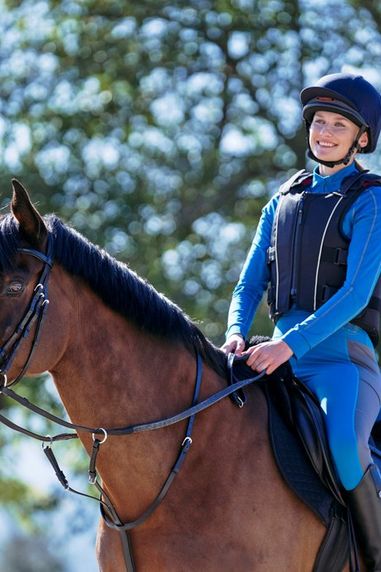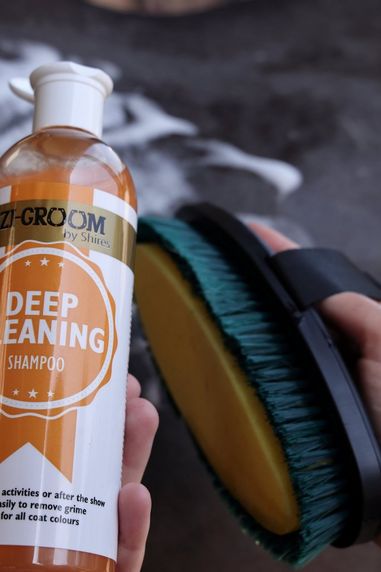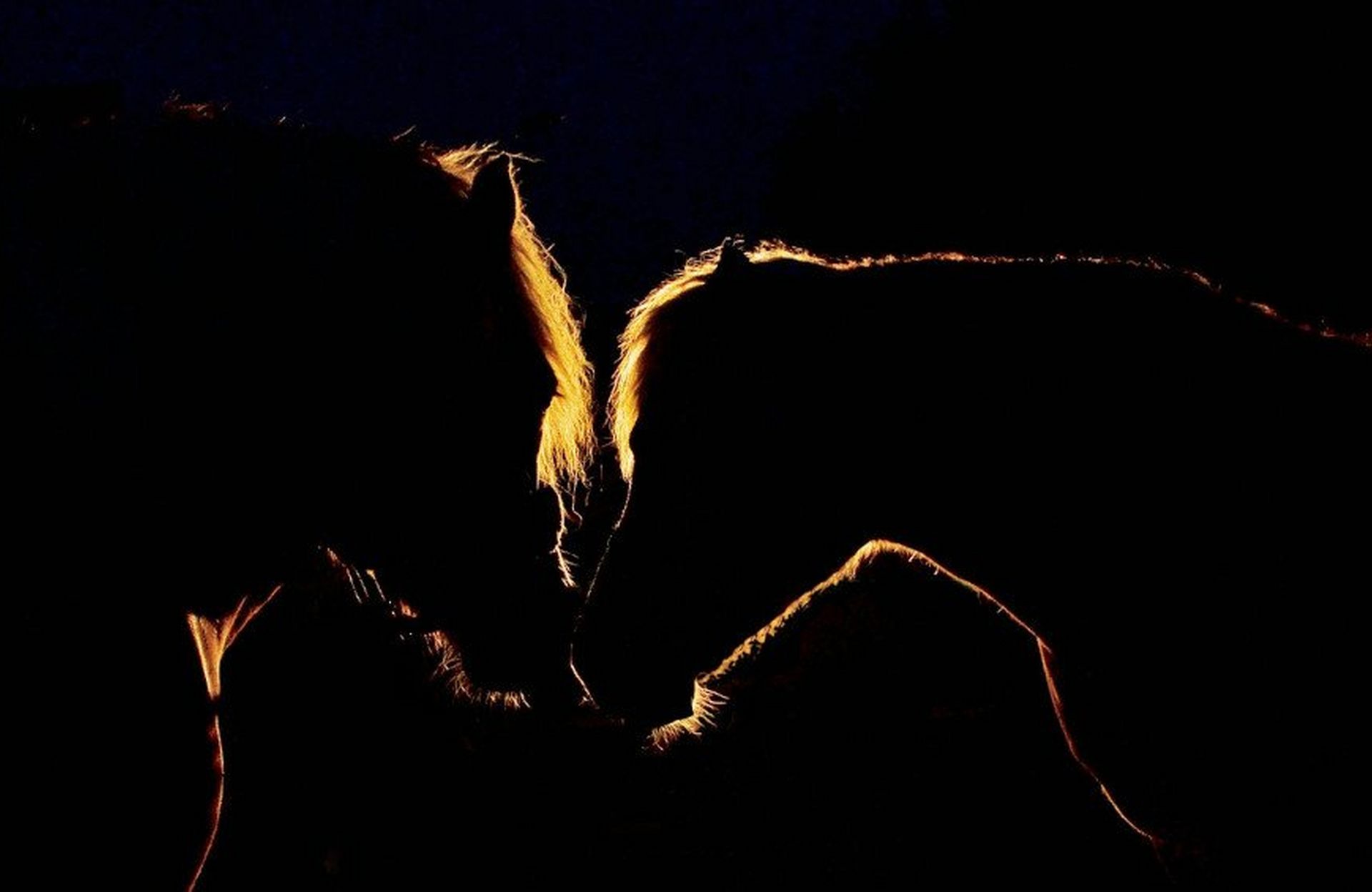
From toffee apples and bonfires to fireworks and sparklers, all over the UK people are getting ready for the 5th November, which is of course, Bonfire Night. A cause for celebration for some, families everywhere are getting ready to watch the skies light up for the night. Sadly though, for many of us, the occasion is far from joyous! If like us you own horses, you'll know that horses and fireworks are not a good combination. In fact, bonfire night is quite possibly the most dreaded time of year. So, here we're going to be taking a look at what you can do to be prepared.
Fireworks & The Law
Here in the UK the use and purchase of fireworks is controlled by The Fireworks Regulations 2004. This legislation is in place not only to keep us safe but to reduce the level of nuisance caused. Here's what the law states...
- Fireworks can be set off at any time of the year, on any day.
- They can be let off on private land and in gardens.
- They must not be let off in public spaces such as parks or streets.
- It is not a legal requirement for neighbours and organisers to inform you of a display, though it is highly recommended.
- It's illegal for anyone under the age of 18 to possess fireworks in a public place.
- Fireworks can not be set off after 11pm except for exempt dates*.
Exempt Days
- Bonfire Night (November 5th 2021): 12pm
- New Year’s Eve (December 31st 2021): 1am
- Diwali (4th November 2021): 1am
- Chinese New Year (1st February 2022): 1am
Horses and Fireworks
While bright colours and flashing lights can make for a mesmerising display, not everyone likes fireworks. Understandably, horses and fireworks simply don't get along. As pray animals, horses have a heightened sense of awareness, highly sensitive to loud noises, strange smells and flashing lights. Naturally, their instinct is to flee when they sense danger. Unfortunately, it's simply impossible to escape from something that's in the sky above you. As a result, even the calmest of horses can become extremely unsettled. When something is upsetting our horses or causing discomfort, the adrenal glands release a hormone called cortisol. Also known as the ‘stress hormone’, this prepares their body to react, resulting in behaviour changes like:
- Vocalisation
- Pawing
- Sweating
- Snorting
- Shaking
- Yawning
- Restlessness
- Spooking
- Bucking & Rearing
- Weaving
- Box/Fence Walking
- Cribbing
- Bolting
- Decreased Appetite
- Flared Nostrils
- Elevated Heart Rate
- Diarrhoea
Horse and Fireworks - Preparation
Often, tradition dictates that fireworks are a central part of many celebrations. Public attitudes towards this are slowly starting to shift, with many of us seeing just how much distress they can cause. That being said, private and organised events still do take place. So, the question is, what can we do to help our horses? As always, the answer lies in good preparation.
In the run up to bonfire night (and New Years Eve) it's a really good idea to keep an eye out for the dates of any planned displays happening nearby. You can do this by looking online, on local noticeboards in shops and keeping an eye out for posters. If your horses are kept close to surrounding properties, you may also want to ask your neighbours about their plans. Obviously, you cannot account for every possibility but it can help you to be prepared.
We'd also recommend that you have adequate third-party liability insurance. In the event that your horse escapes, this will ensure you're covered for any compensation that may be required.
Where Should I Keep My Horse?
Horses are creatures of habit, they like to know what will be happening when. When they aren't following their usual patterns, it can cause anxiety. Ideally, try to stick as close to their usual routine as possible. That being said, there are lots of things that need to be considered when deciding whether your horse should be in or out, take a look...
When To Stable
Stabling your horse could be the best option if:
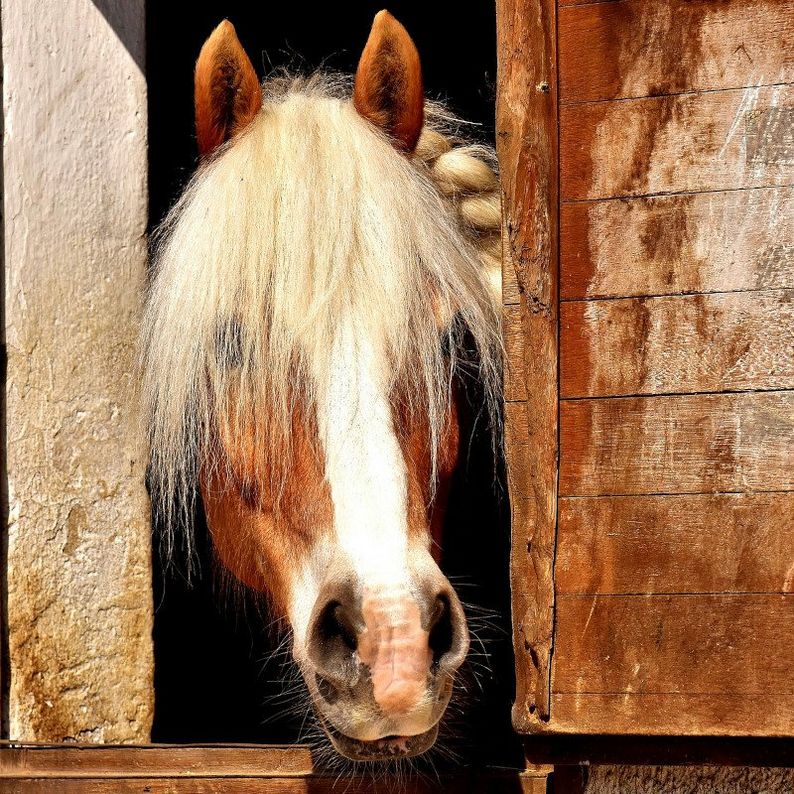
- They're usually kept stabled.
- You know there will be fireworks set off particularly close to the field they're in.
- There's a risk of debris injuring your horse.
- Their paddock is not securely fenced.
- Rough terrain or poor fencing could cause an injury if your horse spooked.
- If your horse would be turned out alone.
If you have your horse stabled, be sure there is minimal risk of them hurting themselves. Make sure your hay nets are tied securely or you could even feed loose to avoid them getting tangled should they spook.
When To Turn Out
Turning your horse out could be the best option if:
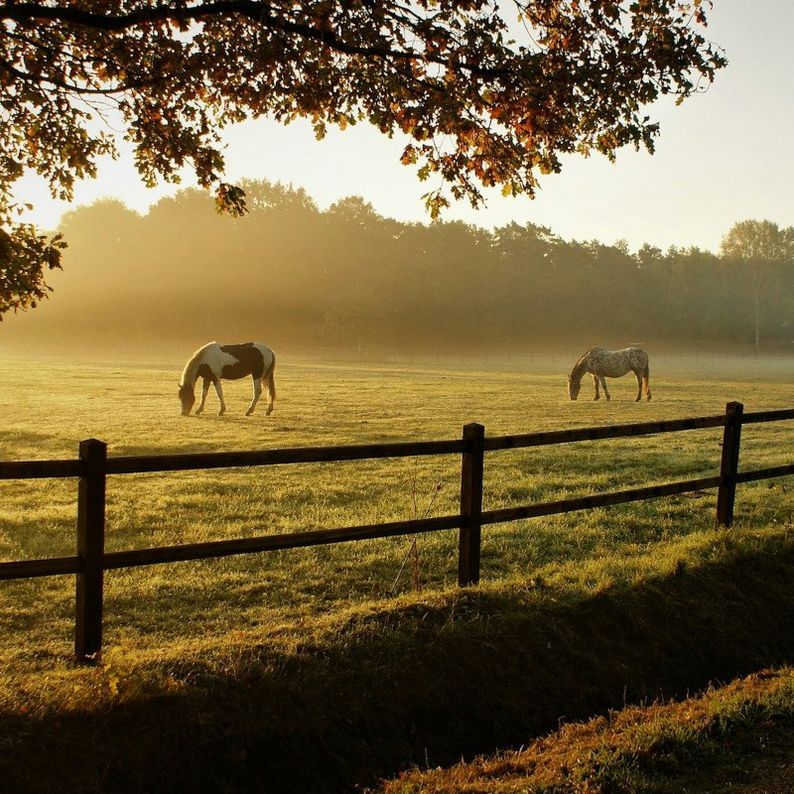
- They become uncomfortable or unsettled in the stable.
- They're usually kept out.
- Your property is far away from residential areas, with no known displays locally.
- Their paddock is large and the fencing is secure.
- Other horses are being turned out.
If you're keeping your horse outside, be sure to check the entire area is secure and safe. Don't forget, even the calmest horses may try to run from fireworks. If possible, avoid leaving your horse out alone to prevent distress.
How Can I Help My Horse?
When we think about horses and fireworks, our primary concern is keeping them safe. But it's not just their physical wellbeing we need to think about, it's their mental state too. Here's a few things you can do to help keep stress to a minimum: Ensure that your horse is not alone. As herd animals, they're happier with company.
You don't have to stay with your horse all night, however regular checks are a good idea. It can be easier to buddy up with other owners to ensure that everyone is checked on regularly between sundown and the firework curfew time.
Ensure your horse has plenty of food to nibble at. It can be best to split this into a few nets or piles.
Provide toys and treats as a welcome distraction. We'd recommend using wall mounted options in the stable, so your horse has plenty of room to move around.
Leave the radio on (out of their reach) to disguise loud bangs. It's best to introduce this well in advance, so they become accustomed to the background noise and associate it with feeling relaxed and calm.
Alternatively, try using ear plugs. These are more commonly used at competitions, but can also help to muffle the sound of loud fireworks.
Leave lights on to reduce the effects of flashing fireworks.
Ensure stables are dry with a deep bed. This will prevent your horse slipping if they start to pace.
Stay calm! Horses are very good at sensing our emotions. So, try to avoid acting differently as it may cause your horse to worry.
Should I Use A Calmer?
If distractions and clever planning simply aren't enough, you may want to consider using a calmer. If you've never done this before, it might sound a little scary. Rest assured though, calmers and sedatives aren't the same thing. Sedatives are given by your vet, usually for veterinary, farriery or dentistry procedures. By definition, they “produce a state of calm or sleep”. On the other hand, calmers simply make it easier for your horse to process what's going on around them! They work by helping to manage their responses to stimuli, of which there's plenty on Bonfire Night! If you know that your horse has a spooky nature, it's worth looking into...
Fast Acting Oral Calmers
These days, there's a huge range of calmers out there to choose from. For Bonfire Night, we'd recommend an instant calmer. These offer immediate, short term effects and are easy to administer orally. When we say immediate, they can take an hour or two to disperse round the horse's body, but this is a much quicker option than other calming supplements that have to be used on a regular basis. Take a look at our top picks...
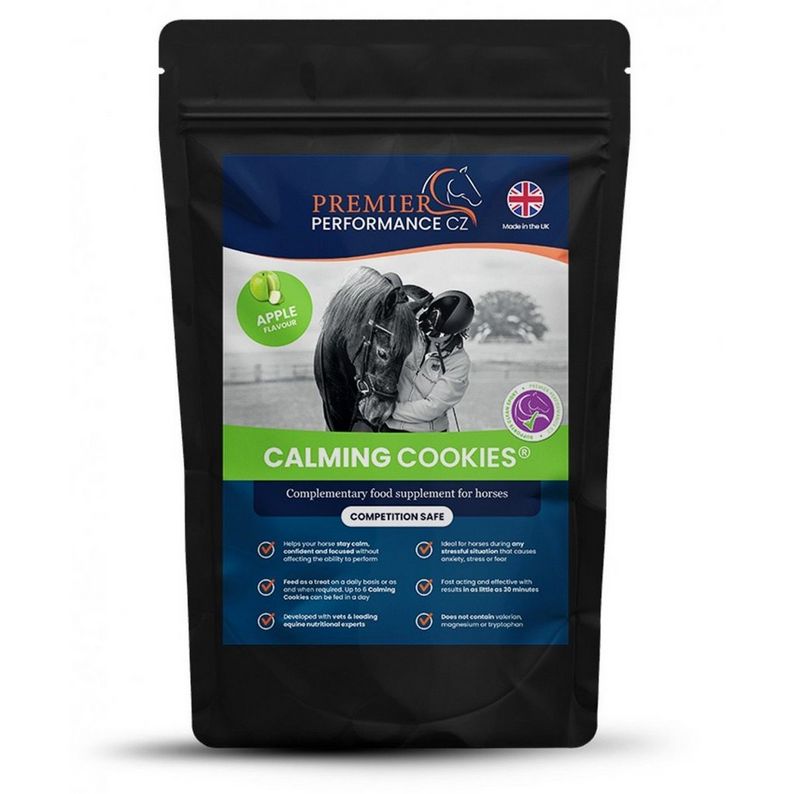
Premier Performance Calming Cookies
Premier Performance Calming Cookies are an all natural approach to calming, without any nasty fillers. Formulated to help take the edge off, they contain two active ingredients:
L-Tyrosine: This helps in the production of serotonin, a natural mood stabilizer. Potential benefits include improved confidence and focus.
L- Arginine: This is converted into nitric oxide, relaxing the blood vessels and improving blood flow.
Calming Cookies are available in a range of flavours, including original, apple, mint and carrot.
Shop Now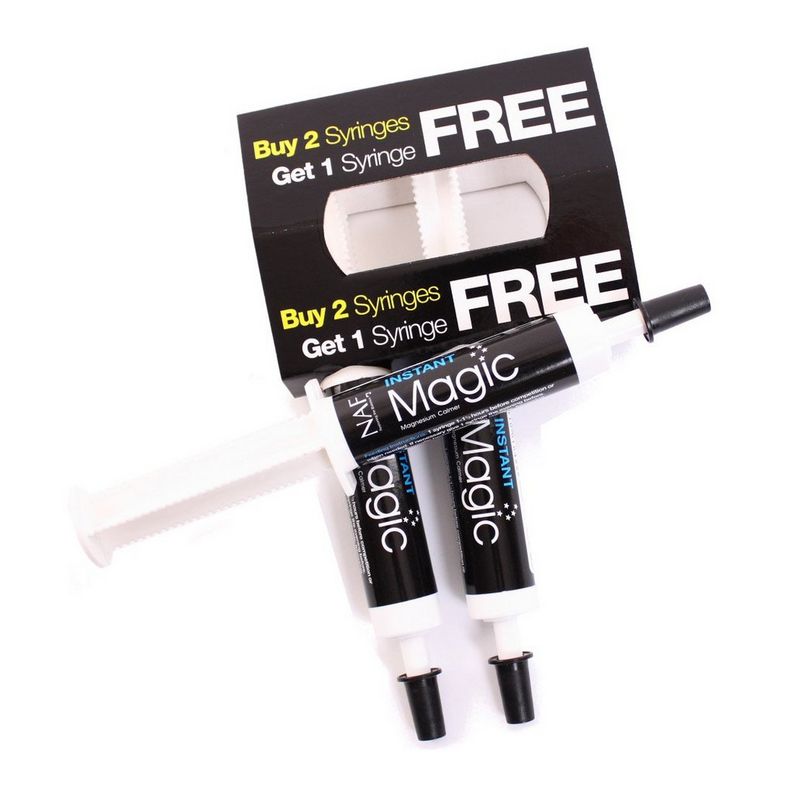
NAF Five Star Instant Magic Calmer
When all else fails, you need a little magic! Fast acting for an instant calming effect, NAF Five Star Magic Instant Calmer Syringes have been exclusively trialled and proven. Formulated with a unique combination of herbs and bio-available magnesium, this award winning formulation gives repeatable, reliable results in reactive horses.
Shop Now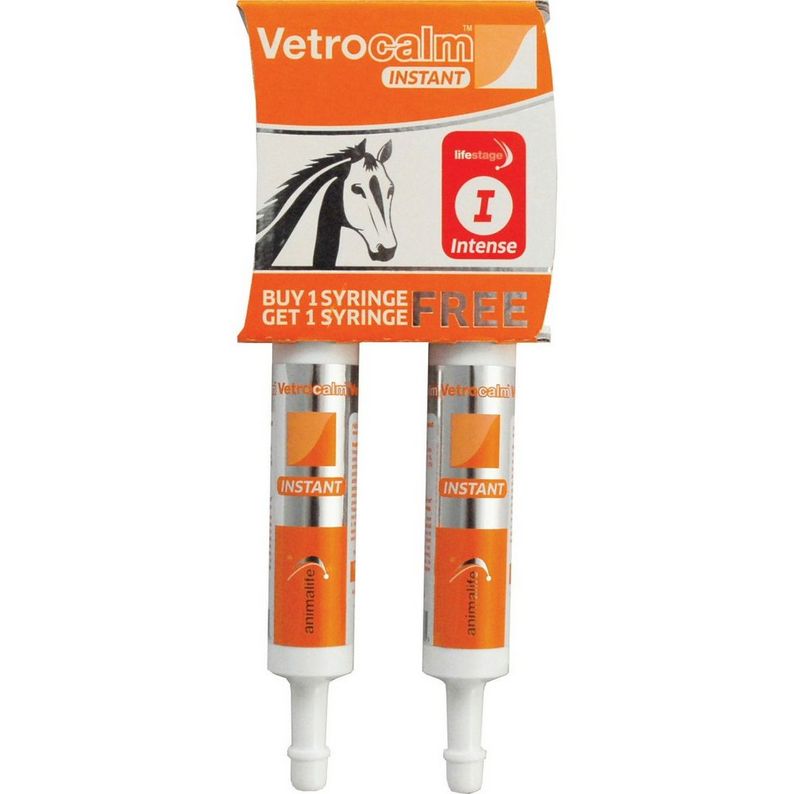
Vetrocalm Intense INSTANT Syringe
Looking for a calmer that works in minutes, but lasts for hours? Great for helping to calm unexpected anxiety, Vetrocalm Intense INSTANT is scientifically formulated to assist oxygen levels using natural ingredients. Replenishment of oxygen in the blood can help horses to deal with stress, fear, anxiety and tension, ideal for Bonfire Night.
Shop Now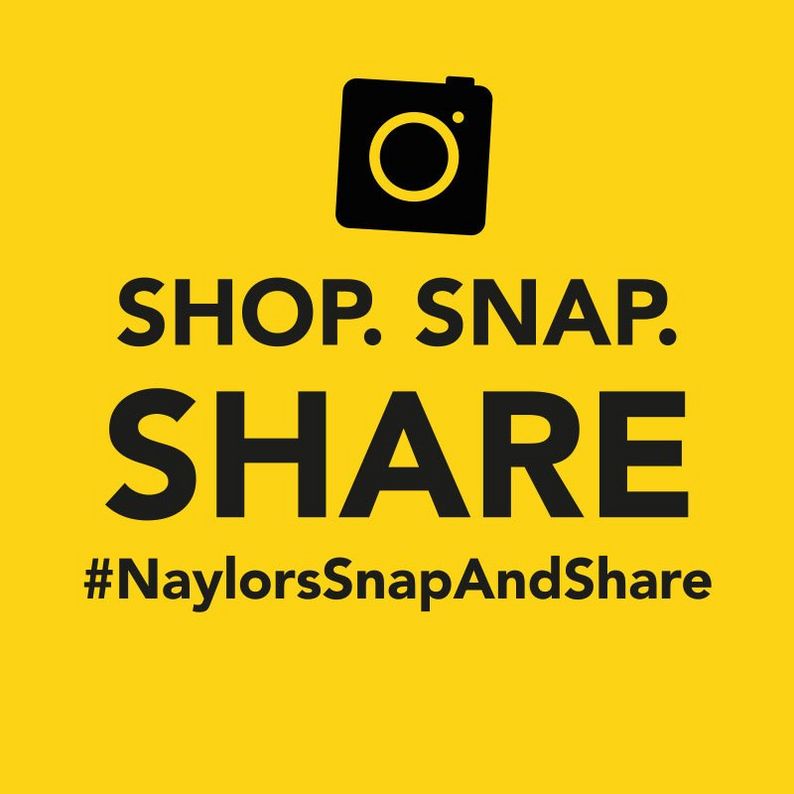
We hope you have found our tips for dealing with horses and fireworks useful and we'd love to hear in the comment section if you have any other tactics you use. If you do experience an incident involving horses and fireworks you can report it to the British Horse Society using their online form. You can shop all of the products in this blog and many more at www.naylors.com or in-store. Don’t forget, if you make a purchase share your pictures with us in the comments or include #NaylorsSnapAndShare on your social posts for the chance to win a Naylors gift card!



